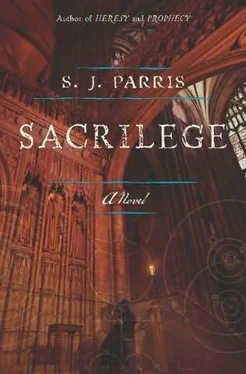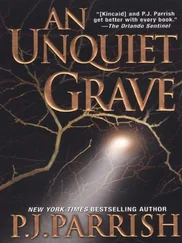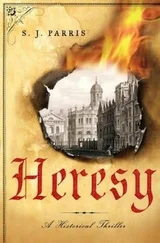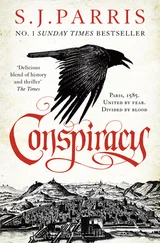“What if the French houses have been searched, looking for me?” Sophia said. “Someone will have told the constables that I was friends with Olivier, I am sure of it.”
“Then you should be all the safer. You have been gone from Canterbury a fortnight; if the authorities have already searched the city, they will not expect you to return.”
“I still don’t see why I can’t come with you, if I am supposed to be your servant.” She tore up a clump of grass with some force, then flung it away as if she found it offensive.
“Because innkeepers, and especially their wives, are the most professionally inquisitive people in all creation,” I said impatiently. “Their whole business is to observe and speculate on the travellers who come through their doors. We’ve been lucky so far, but any more than one night in the same hostel and someone will deduce right away that Kit is not what he claims to be. No.” I shook my head. “Lie low with the Huguenots. I will be enough of a curiosity on my own.” I rubbed a hand across my chin; four days’ growth of dark beard only reinforced the foreignness of my appearance, especially now that the sun had tanned my face to a colour it had not been since I was a boy running free all day on the slopes of Monte Cicada. My hair, too, had been neglected over the past weeks when I was preoccupied with finishing my book; I could not remember the last time I paid a visit to the barber, and it had grown so that it fell across my eyes at the front and curled over my collar at the back. “One of my first tasks once we are inside the city gates must be to get a shave and a haircut,” I complained, pushing my fringe back from my face.
“You look better with no beard,” she remarked, her voice brighter. “Younger, I mean. It suits you.”
I glanced up, surprised, but she remained preoccupied with plucking blades of grass and scattering them around her and did not look at me. I was reminded again of how little I understood a woman like Sophia. I hardly considered myself an expert on the ways of women, but it had been eight years since I cast off my Dominican habit and with it my vows, and at the court of Paris I was given ample opportunity to observe the flirting and simpering of fashionable ladies at close quarters. Sophia had learned none of these wiles, yet her artless frankness was far more disarming; she could offer a compliment as casually as remarking on the weather and every time, like a fool, I allowed it to quicken a little spark of hope.
“It’s a pity we can’t get you a beard somehow,” I said, after a moment’s silence, watching how the shadow of the leaves fell across her smooth cheek. “It would help your concealment no end.”
“My aunt had the beginnings of one,” she said, looking up with an unexpected grin. “She was forever trying to pluck hairs from her chin. I suppose we can’t wait for me to reach her age.”
“If we don’t make your disguise convincing, you won’t live to reach her age,” I said, and immediately regretted it; her smile vanished on the instant and her eyes clouded again. She returned to pulling up the grass with renewed force.
“Are you afraid?” I said.
She looked directly at me then and held my gaze in those expressionless, honey-coloured eyes.
“Canterbury is a small city, as you’ll see. Now that we are so close to its walls, I wonder what I was thinking, coming back.” She passed a hand across her brow and sank onto her elbows. “But this place has never been anything other than a prison to me since I was first brought through its gates. I don’t suppose a real prison would be all that different.”
The careless note in her voice was betrayed by the tightness around her mouth, the way she pressed her lips into a white line. I remembered her silent tears in Faversham. She was afraid, but she was damned if she was going to let me see it. I glanced up at the sky, where a single skein of pale cloud interrupted the eggshell blue.
“Well, then,” I said, levering myself to my feet. “Into the lion’s den.”
* * *
THE VAST CIRCULAR towers of the city’s West Gate loomed up ahead of us on the road, solid and forbidding in dark, flint-studded stone, set in the thick walls like the entrance to a fortress and visible from some distance away. To either side the road was lined with modest buildings of wood and plaster. We crossed a little stone bridge over a rivulet just before the gate and as we followed the road into the cool shadow of its great central archway I felt my skin rise in gooseflesh and my bowels clench. Now that we were on the threshold, I acknowledged the truth in Sophia’s words; if we should be stopped here, I had as good as led her to her death in my eagerness to save her. A foreigner and a fugitive; what chance did we have of passing unnoticed in a small English city with an entrenched suspicion of outsiders? I glanced across at Sophia, but could see little of her face between the peak of her cap and the cloth she pulled up tighter over her nose. I did likewise, and nudged the horse onward under the gate.
But the guard at the gate gave only a cursory glance to my travel licence before waving us through; his main concern seemed to be keeping the flow of traffic moving, though I felt every muscle tense with the expectation of a hand on the reins at any moment. The greatest impediment to our free movement came from the jostling vegetable carts and the press of people carrying baskets and bundles in both directions through the gate, most of whom, I noticed, also had cloths tied around their faces. Perhaps the citizens of Canterbury were less alarmist about the plague rumours, or perhaps the necessity of making a living prevented them from being too picky about incomers. A trickle of sweat ran down my open collar and I tugged it away from my skin with one finger, my eyes still roving the street for any sign of danger.
We found ourselves at the end of a thoroughfare that ran between lines of two- and three-storey houses in the English style, of white plaster and dark timber frames, each upper storey overhanging the one below, so that it seemed the buildings were leaning inwards in order to share some gossip with those opposite. On both sides the ground floors of these buildings had their shutters up and their windows employed as street counters from which to sell their wares; we passed chandlers, ironmongers, drapers, shoemakers, and apothecaries, each shop with its own distinctive smell, all clamouring for the attention of passersby. Barefoot children chased each other, laughing, through the crowds, dodging the mounds of horse dung and refuse and amusing themselves by throwing odd vegetables that had fallen from the carts at stray dogs. Washing had been hung to dry from the windows of the upper storeys, though the closeness of the buildings kept the street shaded. On every corner the painted signs of inns or taverns creaked above doorways, a reminder of the days when Canterbury had played host to travelling pilgrims in their thousands, though many of the hostelries appeared run-down and neglected now, their plaster cracked and paint forlornly blistered. Outside them, old men lolled on wooden benches, jugs of beer in their hands, fanning themselves and watching the life of the street. Passing too close to strangers, I caught the smell of sour sweat. I craned my head back; above the line of crooked rooftops to my left rose the bell tower of the famous cathedral, standing sentinel over the city.
“Turn left,” a voice behind me growled. I turned sharply, and saw Sophia motioning to me with her eyes. “Left here,” she said again, this gruffness apparently an attempt at sounding masculine.
I almost laughed, but did my best to swallow it and urged the horse to the side of the street down a narrow alleyway between houses. Towards the far end of this lane the dwellings grew smaller and poorer, but along the right-hand side where the lane bordered the river stood a row of compact three-storey houses joined together. Their frontage was neat and clean, the steps by the front doors swept free of refuse and to each side of the door earthenware pots brimmed with red flowers. I rode as far as I could go, until the lane petered out in a cluster of shabby cottages. Here I turned the horse in a tight circle and looked expectantly at Sophia.
Читать дальше
Конец ознакомительного отрывка
Купить книгу












